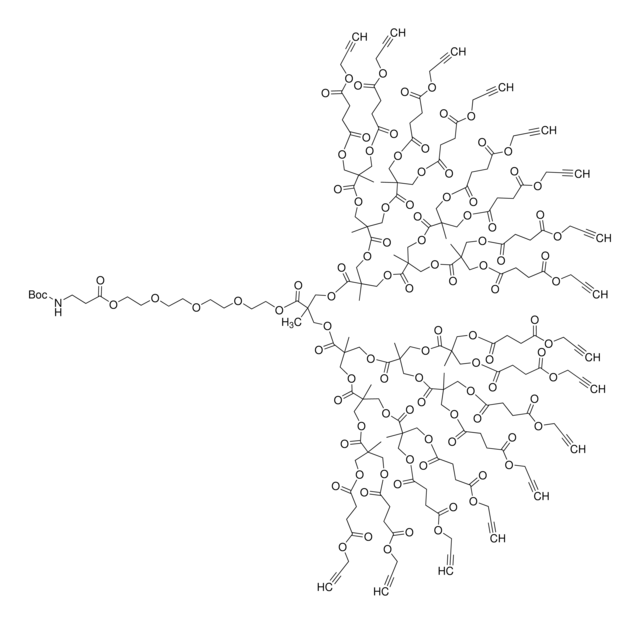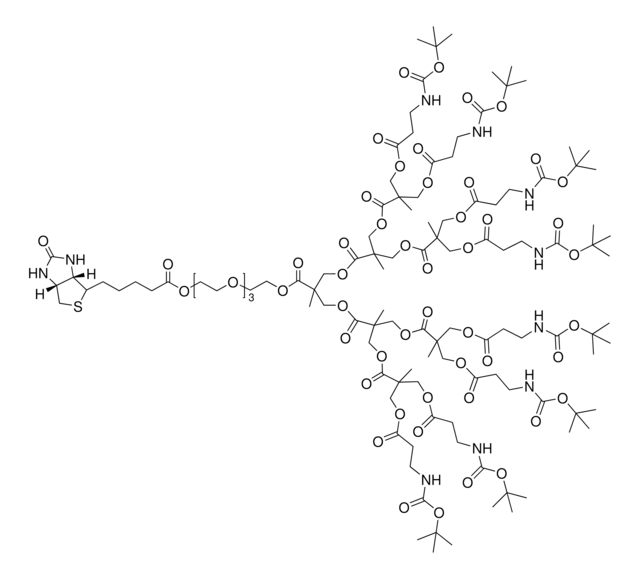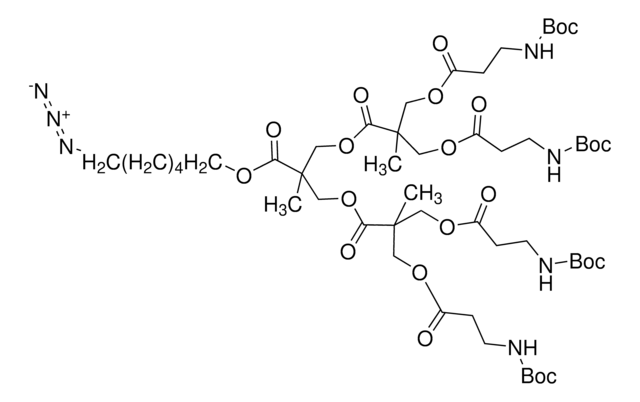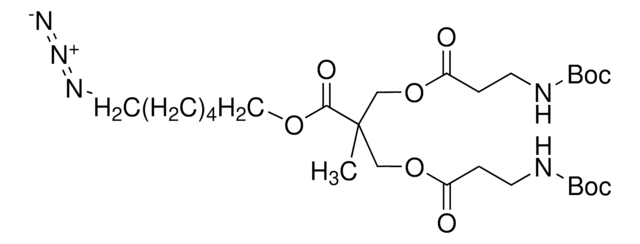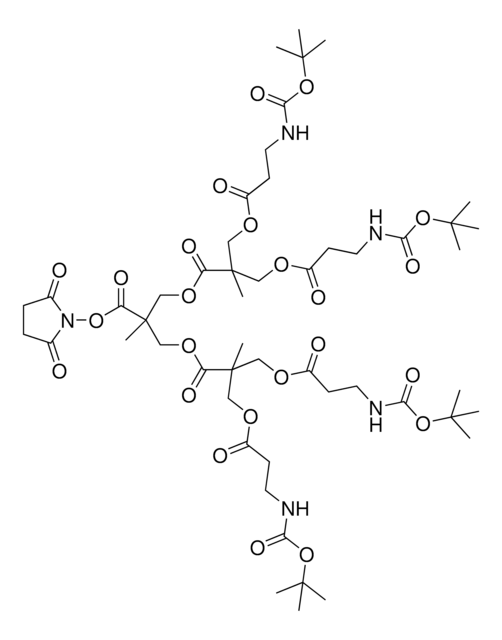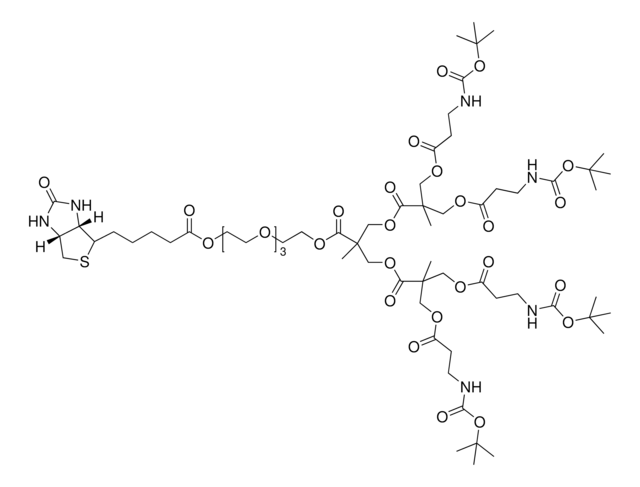901376
Polyester bis-MPA dendron
no. Surface Groups 8, 8 acetylene, 1 NHBoc (core), generation 3
Synonym(s):
PFd-G3-BOCNH-Acetylene, bis-MPA dendron
About This Item
Recommended Products
Quality Level
form
solid
mol wt
generation 3
no. Surface Groups
8
color
white to off-white
storage temp.
−20°C
Related Categories
General description
- Polymer architecture: Dendron
- Generation: 3
- Core functional group: Boc-protected amine
- End Group Functionality: Alkyne
- No. Surface Groups: 8
- Calculated Mol. Wt.: 2283.21 g/mol
- Boc : tert-Butyloxycarbonyl
- bis-MPA : 2,2-Bis(hydroxymethyl)propionic acid
Application
Storage Class Code
11 - Combustible Solids
WGK
WGK 3
Flash Point(F)
Not applicable
Flash Point(C)
Not applicable
Certificates of Analysis (COA)
Search for Certificates of Analysis (COA) by entering the products Lot/Batch Number. Lot and Batch Numbers can be found on a product’s label following the words ‘Lot’ or ‘Batch’.
Already Own This Product?
Find documentation for the products that you have recently purchased in the Document Library.
Articles
Dendritic molecules' biomedical applications, particularly bis-MPA dendritic scaffolds, hold promise for drug delivery.
Dendritic molecules' biomedical applications, particularly bis-MPA dendritic scaffolds, hold promise for drug delivery.
Dendritic molecules' biomedical applications, particularly bis-MPA dendritic scaffolds, hold promise for drug delivery.
Dendritic molecules' biomedical applications, particularly bis-MPA dendritic scaffolds, hold promise for drug delivery.
Our team of scientists has experience in all areas of research including Life Science, Material Science, Chemical Synthesis, Chromatography, Analytical and many others.
Contact Technical Service

